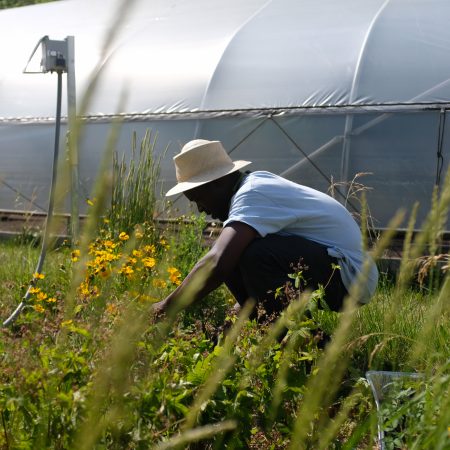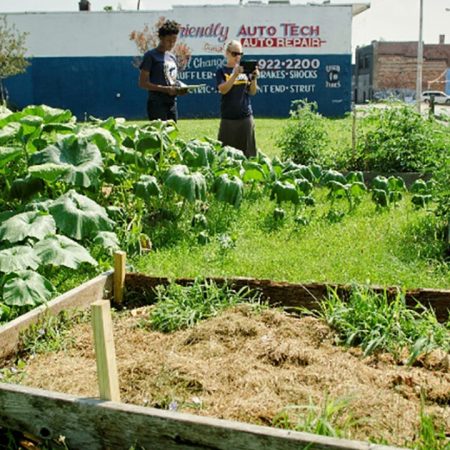The Metro: Oakland Avenue Urban Farm turns 25
Urban Farming simply means growing produce, fruits and veggies in a city setting. So think rooftop gardens and, in the case of Oakland Avenue Urban Farm, the use of vacant lots in Detroit North End.
Oakland Avenue Urban Farm is celebrating 25 years of operation. In 2000, its founder pastor Reverend Bertha L. Carter saw that the community needed to help itself instead of waiting on others. Rev. Carter urged her congregation to address food insecurity by developing the Oakland Avenue Urban Farm.

Through the years, their goal has been to use urban farming as a way to create jobs and new green career pathways for residents. Overall, the organization wants to teach Detroit residents how to live and thrive healthier.

Executive Director of Oakland Avenue Urban Farm
This year marks 25 years of urban farming in the North End and to commemorate the organization is celebrating with a gala on September 27th.
Jerry Ann Hebron is Executive Director Northend Christian CDC. She joined The Metro to talk more about 25 years, and what the future holds for urban farming in Detroit.
Listen to The Metro weekdays from 10 a.m. to noon ET on 101.9 FM and streaming on demand.
Subscribe to The Metro on Apple Podcasts, Spotify, NPR.org or wherever you get your podcasts.
Support local journalism.
WDET strives to cover what’s happening in your community. As a public media institution, we maintain our ability to explore the music and culture of our region through independent support from readers like you. If you value WDET as your source of news, music and conversation, please make a gift today.More stories from The Metro
The post The Metro: Oakland Avenue Urban Farm turns 25 appeared first on WDET 101.9 FM.







